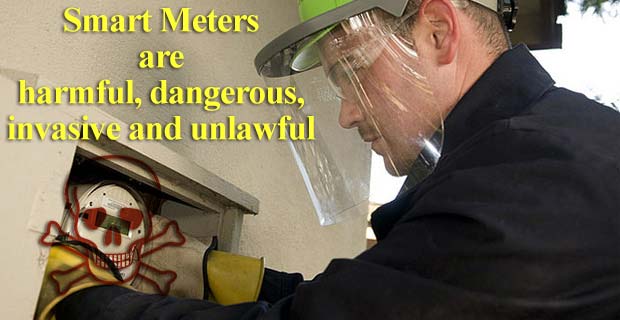Futurist: Smart Meters Will Know What TV Show You are Watching
'Internet of Things' could have "catastrophic consequences"

- By Paul Joseph Watson - February 12, 2015
Global security futurist Marc Goodman warns that smart meters may one day be able to detect what television programs people are watching, another example of how the ‘Internet of Things’ threatens to jeopardize privacy.
Goodman, who has previously worked as an adviser to the FBI, the US Secret Service and Interpol, told Singularity Hub’s Jason Dorrier that the widespread implementation of the ‘Internet of Things’ could lead to “catastrophic consequences,” such as cars being remotely hacked and made to crash.
“Twenty years ago nobody worried about their car being hacked,” said Goodman. “Today, a typical car uses over 250 microchips that can be hacked remotely. Somebody can remotely deploy your airbag or slam on the brakes as you’re going down the highway.”
The futurist also warned that the arrival of the ‘smart home’ would lead to a cornucopia of new surveillance opportunities, echoing former CIA director David Petraeus, who hailed the “Internet of things” as a transformational boon for “clandestine tradecraft” in a 2012 Wired Magazine interview.
Smart meters, for example, are now being installed around the world. Every single device you plug into an electric socket has its own signature. When you plug in your Samsung television or Hamilton blender, the outlet knows what is being plugged into it. And from that you can derive even further intelligence.
There are startups now that are looking at the fluctuations in energy usage to deduce what pixels are highlighted on your television, and by knowing what pixels are highlighted on the TV, they can reverse engineer, based upon the electricity that you use, what television programs you’re watching.
The European Data Protection Supervisor (EDPS) cautions that the rollout of smart meters will allow “massive collection of personal data” by utility companies and governments, tracking what “households do within the privacy of their own homes, whether they are away on holiday or at work, if someone uses a specific medical device or a baby monitor, or how they spend their free time”.
The idea of the government or hackers vacuuming up information via people’s televisions has been a hot topic this week, with Samsung being forced to respond to revelations that its Smart TVs are sending private conversations to a third party Internet server.
As Infowars first reported back in November, Samsung’s global privacy policy advises users to, “Please be aware that if your spoken words include personal or other sensitive information, that information will be among the data captured and transmitted to a third party through your use of Voice Recognition.”
After the mainstream media picked up the story three months later, Samsung was forced to admit that words heard by the device’s microphone were being “sent to a server” run by a third party, although the company said the communications were encrypted.
The Dark Side of 'Smart' Meters
November 01, 2010 - In this invitational presentation to the San Francisco Tesla Society consulting engineer Rob States explains how PG&E's so-called 'smart' meters work and why they endanger health and privacy. He asks the obvious question, "Why would you trust the company that brought you Prop. 16?"


